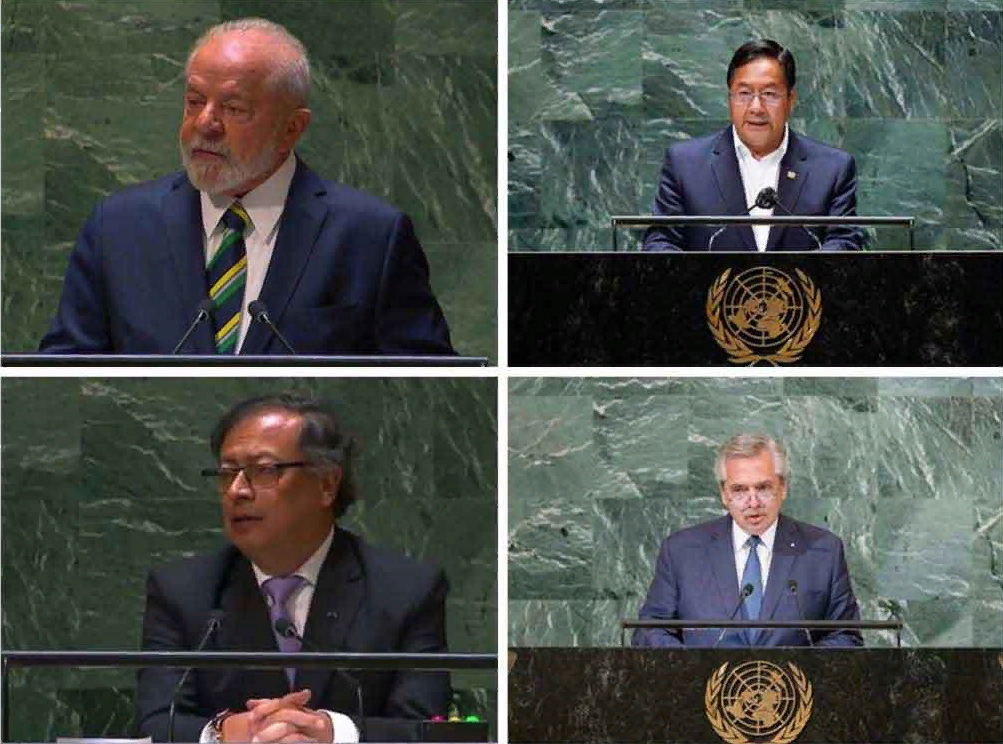The rejection of the United States blockade of Cuba was strongly addressed by leaders attending the High Level segment of the UN General Assembly, which continues in New York today.
Brazilian president Luiz Inacio Lula Da Silva, who opened the day this Tuesday, once again condemned the unilateral siege that the White House has maintained on Cuba for more than six decades.
For his part, the president of Bolivia, Luis Arce, described the economic, commercial and financial blockade of the island as inhuman and criminal. When speaking in the debate of the 78th session of that multilateral forum, the dignitary criticized such coercive measures and the reprisals applied by hegemonic powers against the people to the detriment of their development and the most basic human rights.
According to Arce, these punitive measures confirm the dysfunctionality of a system far from international law and multilateralism.
In turn, the president of Cuba, Miguel Díaz-Canel, denounced that the blockade is an extraterritorial, cruel and silent economic war that is accompanied by a powerful political machinery of destabilization against his country.
He highlighted that the Cuban people resist and creatively win in the face of the ruthless economic war, which since 2019, in the midst of the pandemic, opportunistically escalated to an even more extreme dimension.
Outside of this headquarters, the island has also received signs of support and condemnation of the policy of asphyxiation imposed by the United States.
A giant billboard illuminated the New York night in downtown Union Square with the message: ‘Let Cuba live’ and ‘Cuba is a sponsor of peace.’
The light, projected on the façade of a building on the corner of 14th Street and Broadway, is accompanied by the label ‘off the list’, in reference to the constant request from sectors in solidarity with the island in the United States that urge it to be removed from the list of countries sponsoring terrorism.
Also the day before, representatives of organizations and social movements stood in front of the Cuban Mission at the United Nations to support the presence of President Díaz-Canel in New York and reiterate their support for the Caribbean island.


